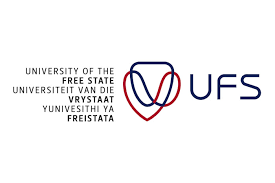University of the Free State: UFS builds capacity for digital innovation and product development
The Interdisciplinary Centre for Digital Futures (ICDF), in collaboration with the Department of Sustainable Agriculture and Food Systems and the Department of Business Management at the University of the Free State (UFS), is working on a project, Building African Capacities for the Development of Clusters, to establish regional innovation management hubs within the Free State context.
Herkulaas Combrink, Interim Co-Director of the ICDF, sees the hubs, which are funded by the German Government, as regional innovation clusters that allow competitors in the same industry to share innovation processes. In the case of the UFS, it is the development of new technologies.
Transferring capacity
Recently, the ICDF hosted Prof Dirk Fornahl, Dr Holger Graf, and Matthias Hugel from the Friedrich Schiller University Jena (FSU). With their assistance, the UFS has gained the capacity to teach about and build their own innovation hubs. Currently, they are compiling a manual with all the participants involved to share the core competencies of these concepts.
Combrink, together with Prof Katinka de Wet, the Interim Co-Director of the ICDF; Prof Johan van Niekerk, Head of the Department of Sustainable Food Systems and Development; and Dr Karen Booysen, Lecturer in the Department of Business Management, is driving the project from the UFS side. They assisted in the conceptualisation and coordination of the project and connected the UFS and FSU role players to industry and government partners for their perspective on regional innovation policies and processes. In addition, the German counterparts, particularly the FSU and Technopolis Group, assisted in driving the project logistically.
Combrink believes the ICDF, the Department of Sustainable Agriculture and Food Systems, and the Department of Business Management are well positioned to collaborate and innovate on a range of different projects and to contribute to the adoption of research within disciplines that already exist in these fields.
He is of the opinion that the latter departments are excellently positioned to benefit from digital innovation and digital product development.
“Within Sustainable Agriculture and Food Systems, consumer scientists are already using eye-tracking technologies, and within Business Management, there are platforms that can assist young, innovative entrepreneurs.”
“Between these departments, the ICDF is supporting the digital and interdisciplinary product development nexus that will add long-term value to the UFS digital innovation space, specifically in terms of improving the user experience in digital product development,” remarks Combrink.
Strengthening innovation in technology
Resulting from this project, the ICDF will have a manual and a curriculum to strengthen innovation in technology and to build the UFS interdisciplinary space.
According to Combrink, the curriculum has three elements to it, i.e., that of innovation – requiring different disciplines to work together; intellectual property; and collaboration between competing stakeholders. “There will be several elements of the curriculum embedded in different departments. This will form the basis of graduate research, as regional innovation can lead to spin-off companies that can increase UFS third-stream revenue,” he says.
Cluster data management and cluster mapping, cluster policy and regional innovation policy, and intellectual property and co-creation are covered in the manual that will be developed as part of the project.

